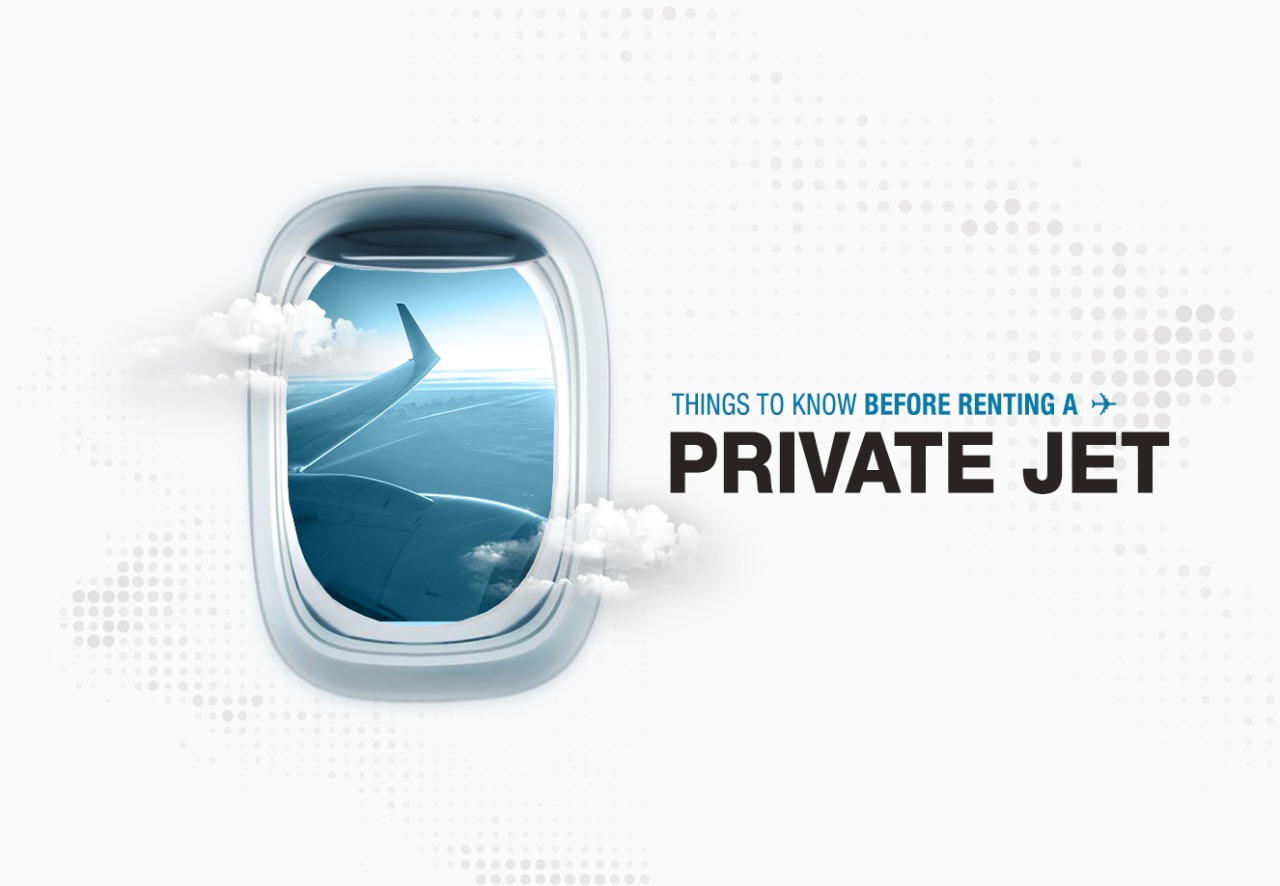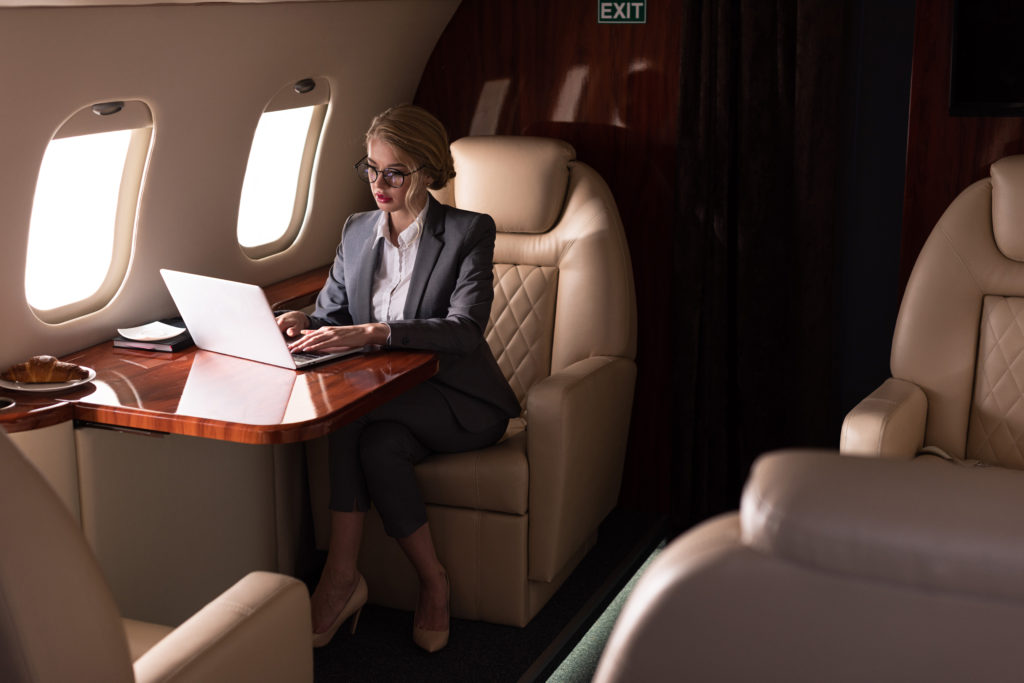Things To Know Before Renting A Private Jet
A private jet flight has always been labeled as a luxury that the rich, ultra-rich, or celebrities could afford. The idea that you need to be rich in order to afford a private flight is long and out of date. The Coronavirus pandemic in 2020 has proven that the contrary is the case, and private jets have been significantly dominating air transport. Choosing an experienced operator for your journey will change the game as it helps you with the price and comfort. However, there are a few things to keep in mind before renting a private jet.
Who Owns The Aircraft?
Private jets are often not owned by the firms that offer them for charter. Instead, the aircraft are merely managed by the firms, which handle all aspects of maintaining the aircraft for its true owner. It is crucial to know who actually owns and operates the plane, and what their record is. Sometimes this will be an individual owner and run by a management company but, in many cases, it will be a business. The management company operating the aircraft should own a current FAA 135 Operating Certificate. Ask to see theirs, and make sure the name of the company matches up with the name on the certificate. Customers should ask whether the operator has a safety rating, like the AOC approved by the CAA.
After all, it’s essential that you know the aircraft comes from a legitimate source.
Parking Protocol
You wouldn’t need a limo anymore as a major benefit of using the private terminal at airports is free parking right outside the terminal door. Most airports also offer the perk to drive a car right up to the plane and have it waiting planeside upon arrival, rendering the airport limo pointless. One of the biggest perks of chartering a private aircraft is that you can typically drive your vehicle right up to the aircraft. You can quickly board while the crew manages the luggage and parking/storing your vehicle after you’ve taken off. Confirm the parking protocol with your chosen provider.
Luggage Limitations
The luggage facility will not always be the same for all aircraft depending on the size and storage facility. Many people assume that chartering a private jet means they can exceed the standard luggage limits often enforced on commercial airlines. This isn’t necessarily the case. Many private aircraft may have luggage limitations due to available storage compartments or even weight restrictions. If you’re flying alone or as a couple, you may not have to worry about how much you can bring with you, but if you’re bringing a group of people, your luggage should be a consideration.
Food And Beverages Rules
Unlike commercial airlines where you have to wait for the beverage cart to finally reach your aisle, most of them allow passengers on a private jet to bring their own alcohol and food on board. But some may mandate that any alcoholic beverages on the flight must be served by your designated crew. Some chartered flight companies have a list of things to be avoided like a no-red wine policy to avoid spills and stains within the cabin. Always discuss the specific food and beverage policy with your chosen provider before your trip.
Identifications Requirements
One of the main highlights of flying on a private jet means you’ll never have to wait in a long airport security line or have to follow strict regulations. However, many people flying on a chartered plane don’t realize that they still have to bring proper identification when boarding the plane. For domestic trips, a driver’s license is typically sufficient. However, for international travel, you’ll need a current passport. No matter where the destination is, a vaccination certificate should be carried along in regard to the current scenario.
Privileges for the Payer
You can enjoy almost every luxury that you are ready to pay for. Generally, there are no reservations and the only assigned seat on a chartered plane is the one reserved for the owner of the jet or the person paying for the excursion. If you don’t fall into either one of those categories, you should wait until the person who does selects his/her seat before grabbing yours; perks of being a paying member.
Book Early
Booking in advance definitely has its advantages because many private crafts can be booked for travel on the same day. Giving your chosen provider as much of a heads-up as possible will grant you access to your choice in aircraft, which can make a significant impact on your overall flight experience. Business trips, family travel, and even group getaways – booking in advance means you’ll be able to select a suitable jet. Booking earlier can also make significant advantages on the prices also.
Good Manners Or Extra Pay?
Appreciate the fact that they’re flying on a multi-million dollar aircraft and do not treat it as a rental car. Trashed planes – whether it be from negligent passengers who frequently miss their mouth when they eat or from a pet that’s untrained to fly – are common in the industry and operators are more than happy to pass those costs along to the flyer. For any kind of unfortunate damage from your side, you will have to deal with the extra thousands in your bill. Even spilling red wine can see a massive cleaning fee slapped onto the bill at the end of the flight. Cabin attendants will often do as much as they can but some messes require professional cleaning and detailing, which doesn’t come cheap and often inconveniences the crew who may have to supervise the process, especially if away from home base.
Is Your Jet Insured?
This is not a factor to be overlooked. If your aircraft isn’t insured, this could cause you massive problems if anything goes wrong. Check with them for the insurance and safety certificates before you book one.
If the operator has insurance, they should have received a Certificate of Insurance. On the certificate, you’ll be able to see the tail number of the aircraft. Ask to see the certificate and make sure the numbers match up.
Be Flexible And Pay Wisely
When the whole private jet thing can cost thousands, even just a few minutes of extra flying can add up to the final bill. If you can deal with the aircraft’s home base – even if it means driving to a further airport – can easily save thousands by saving on repositioning costs, extra landing and airport fees, and additional fuel.
Even more, savings can be made in the final bill when it comes to one-way flights or empty legs, where a plane is already scheduled to fly a given route and the operator can sell the flight cheaper since the aircraft is heading in that direction.
Cheaper Isn’t Always Reliable!
Even though we tend to go and often request the cheapest and smallest aircraft that can perform the mission to save money, cheap doesn’t always mean bad, it can mean using a less reliable operator. A frequent problem is having an aircraft experience mechanical issues, making it useless for a trip. If a backup aircraft is not available, a recovery option can often cost extra with any savings gained by picking the initial cheaper option and causing you a very uncomfortable and stressful journey.



